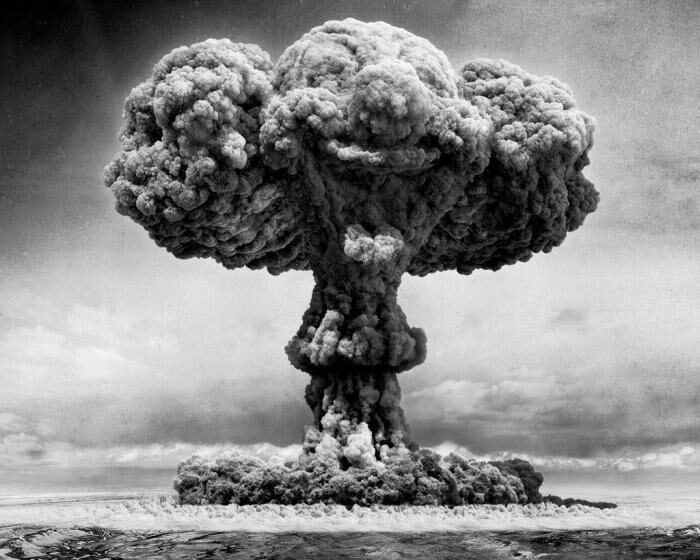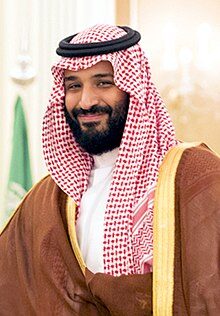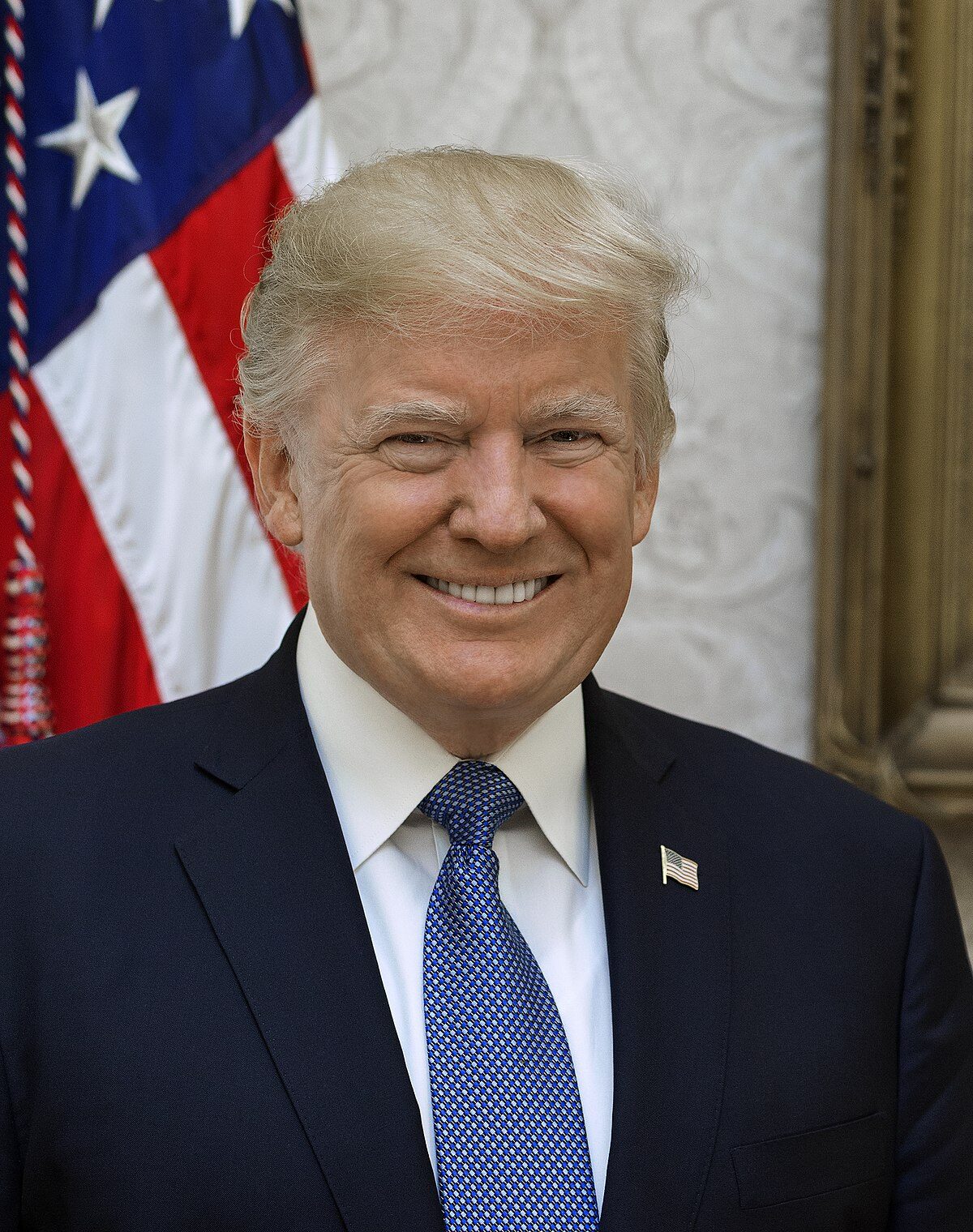A SAUDI ATOMIC BOMB?

The Joint Comprehensive Plan of Action signed between Iran on one hand and the five Permanent Members of UN Security Council plus Germany on July 14, 2015 was the final act of a negotiation that went on for over 13 years amid threats, accusations, international controls and several moments of tension. That deal is now under barrage by President Donald Trump who would like to see it canceled or modified. A stance that is supported by Israel, Saudi Arabia and Egypt. The European partners to the treaty are not as convinced. Recently, Saudi crown prince, Mohamed bin Salman, visited Washington to express his fear about Iran’s nuclear program and asked to evaluate how his country could advance and acquire nuclear technology.
On the side of Iran
The threat of new sanctions by the US will only be effective if China and Russia agree. Iran is one of Moscow’s key assets in the region and especially in Syria. Tehran’s role is also useful to Russian interests to counter Turkish aggressiveness, as events in Afrin have widely shown. As far as China is concerned, they are only partly involved in the Middle East. But, just like in the past with the Syrian nuclear program, Beijing could allow the North Koreans to offer their technical support to the Iranians. Generally, targeting Iran would mean pushing Tehran yet closer to both Moscow and Beijing.
On the side of Saudi Arabia
The idea that Saudi Arabia could acquire nuclear technology is seen with distrust by Israel, that wants to remain the sole country in the region to own an atomic bomb. However, Mohamed bin Salman can count on his friendship with Jared Kushner, Trump’s son-in-law and an orthodox Jew.
The new US President has struck a deal worth over 100 billion dollars to sell weapons to the Saudis and could open a partnership in the nuclear sector. A policy change with respect to the Obama era at the White House.

Mohammed bin Salman
A longtime wish Saudi Arabia has expressed its interest to developing nuclear technology several times in the past. Back in 2006 it had launched a joint nuclear development program with the other members of the Gulf Cooperation Council. And had then struck a series of deals with companies from the US, France, Argentina, China, South Korea, UK, Kazakhstan and Russia. In 2010 a royal decree signed off a long term project to build 16 nuclear reactors that could produce both electricity and help desalinize marine waters. The project claims that 20% of Saudi Arabia’s energy could come from nuclear power by 2032. Nuclear power plants that were to be used for civilian purposes – just like in Iran – but that imply the development of a nuclear know how. Currently, the Saudi nuclear program has not even taken off and the hypothesis of building the 16 reactors has been delayed to 2040. However, the partnerships that have been agreed could help booster the program. In February 2018, US Energy Secretary Rick Perry has began negotiating the transfer of nuclear material to Saudi Arabia with the Saudis as long as non-proliferation commitments are respected. Although the kingdom is a signatory of the 1988 Nuclear Non Proliferation Treaty and is a member of the International Atomic Energy Agency, just like any other country using nuclear technology, shifting from civilian to military use is not complicated. However, in order to do so, the Saudis need to build the infrastructure and acquire the competences needed to avoid a meltdown. And this will take some time. Unlike Israel, South Africa and North Korea – that have covertly developed their nuclear programs – the Saudis want to openly pursue the technology. This is one of the other factors that will affect the development of the Saudi nuclear program. A collateral issue of a potential military use of nuclear technology, is the acquisition of the vectors or missiles that could potentially carry and drop a nuclear warhead. The Saudis lack ballistic missiles, but could use the F-15s to carry a nuclear weapons over an enemy target.
Pakistan’s role
Pakistan is a key country for the Saudi’s nuclear ambitions, given the longtime relationship between the two countries. Saudi Arabia helped finance the development of Pakistan’s nuclear program and, according to unconfirmed sources, 4 out of the 7 Pakistani nuclear bombs are allotted to the Saudis. It is unclear whether the warheads are in Pakistan, as is more likely, or in Saudi Arabia. Regardless of where they are, we know Ryad could potentially rely on nuclear weapons if need be.
Israel’s stance
Israel is the one country in the Middle East that wants to keep the region denuclearized. After all, Tel Aviv owns some 200 nuclear warheads and is a non-signatory to international conventions. The Israelis want to maintain the primacy as the sole nuclear power in the region. And they do everything in their power to prevent their neighbors from developing the technology. In September 2007, the Israelis raided a research center in Deir Ezzor, in Syria, where the regime had been developing its nuclear ambitions with the aid of North Korea. Tel Aviv has recently claimed that strike, something it generally doesn’t do, as a reminder to Iran. Similarly, in 1981 the Israelis destroyed a nuclear reactor that had been built with French assistance in Iraq. What is remarkable is that at the time the Iraqi nuclear program had been financed by the Saudis to support Saddam Hussein in his conflict against Iran and to help the kingdom of the Saud acquire nuclear weapons. The Saudis had even supported an Iranian nuclear program during the days of the Shah.
A common enemy
An Israeli air strike against Iranian nuclear infrastructure would encounter a series of difficulties, the main one being the distance from the target that would allow Tehran to anticipate the threat. Another inevitable consequence would be to open another war front in the region. Had this been an easy option, the Israelis would have struck Iran years ago. However, the possibility of a military op against Iran is still on the table. This is confirmed by a series of informal talks with the Saudis to allow Israeli commercial flights over Saudi airspace on their way to India. This is a tactic that has been used by Israel in the past for this type of action: get closer to the target by exploiting the cover of commercial flight routes.
After all, the nuclear deterrent is valid only if your competitors don’t have one. This is the case for Iran, but also for the Saudis. Israel and Saudi Arabia currently share a common enemy: Iran. But they don’t necessarily share a common strategy on the other fronts in the region. They are allies today, but could cease to be so in the future. And this is why Israel will prevent the Saudis from developing a nuclear bomb.

Donald Trump
The danger of nukes in the Middle East Donald Trump’s erratic approach does not contemplate the consequences of his actions. The United States seem to want to regain the prestige they have lost in recent years in the Middle East by supporting a series of reckless initiatives. To support Saudi Arabia’s nuclear programs to counter the Iranian one is one of such actions. Saudi Arabia is an important commercial partner and has wide oil reserves. But it is also one of the countries that has been financing Islamic terrorism. Despite Mohamed bin Salman’s pseudo-reforms, the kingdom of the Saud is still heavily reliant on the radical islamic Wahabi clergy that supports its grip onto power. Offering nuclear technology to a country at risk of being overcome by radicals is never a good idea. Back in 1967, the United States were willing to supply Iran with 5 nuclear reactors. It was the Shah’s decision to block the project and join the Nuclear Non-Proliferation Treaty. Had the project moved ahead, Iran would now have a nuclear warhead. Similarly with Pakistan, whose nuclear weapons are exposed to both Islamic radicalism, instability and a war of attrition with India. We should have learnt that lesson. Or maybe we didn’t.

